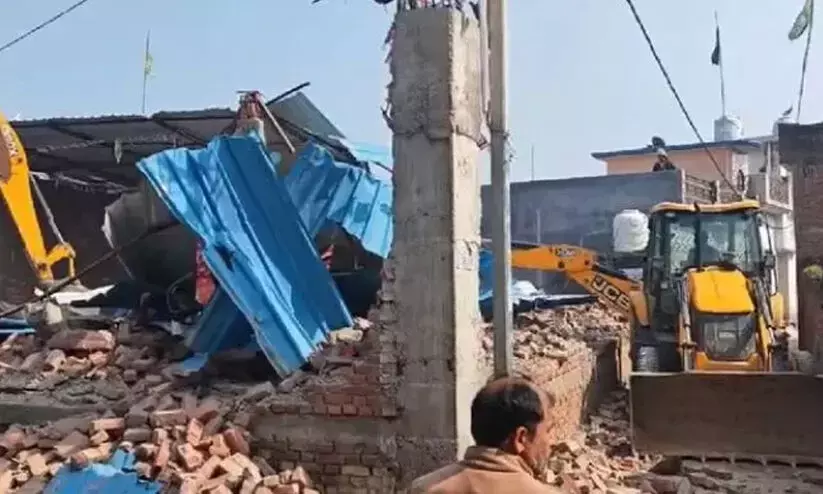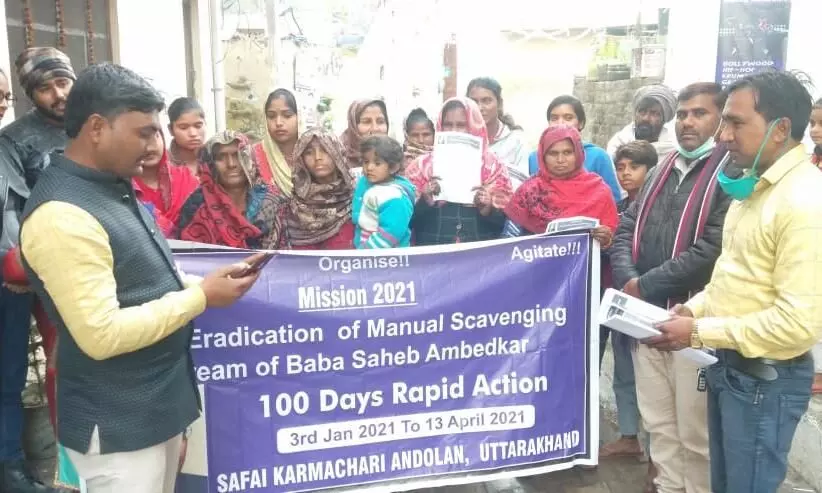
'Safai Karamchari Andolan' starts 'Mission 2021' to eradicate manual scavenging
text_fieldsUttarakhand: With a motive to end the practice of manual scavenging, Safai Karamchari Andolan(SKA) has started a 100 day campaign 'Mission 2021' in Bhagwanpur at Uttarakhand. The primary focus is for bringing down the use of dry toilets that said to be affected to Dalit women.
The 100 days campaign which will be effective in seven states including Uttar Pradesh, Madhya Pradesh, Bihar, Uttarakhand, Rajasthan and Jammu and Kashmir was officially announced in Twitter by Bezwada Wilson, one of the founders of SKA on January 3.
Safai Karamchari Andolan (SKA) is a movement in India for elimination of manual scavenging, the practice of cleaning, carrying and disposing human excreta from dry latrines or sewers. While speaking with Madhyamam, Bezwada Wilson, the convenor of SKA told the campaign is a rapid action to end individual dry toilets in seven states.
"We started the campaign on Savitribhai's birth anniversary on January 3. Many of them are extending solidarity for SKA. It will primarily focus on the liberation and rehabilitation of women who are doing manual scavenging works across seven states. Government should listen to them. So far, there is no proper allocation for Dalit women for almost 7 to 8 years," Wilson said
"SKA is planning to organize big dharnas in Delhi if the government failed to declare 'India, a manual scavenging free nation'. By highlighting the plights faces by Dalit women and manual scavengers the campaign will increase the pressure on government. This is people's movement and government must listen to their demands" He further added.
In 2014, Supreme Court in Safai Karamchari Andolan and Others vs Union Of India and Others had found out that there are 96 lakh dry toilets (toilets without flushes) in India. Also, a report by the International Dalit Solidarity Network shows 95-98 percent of manual scavengers in India are women.
The report also states that women who practices the manual scavenging works are going through sexual harassment from both upper caste and lower caste men. It figures out that women manual scavengers are very less paid comparatively to men scavengers.
According to the report by International Dalit Solidarity Network, Manual scavenging is deep rooted in caste system. Among 1.3 million people in India doing manual scavenging, 99% belongs to Dalit community and from it 96% are women. Uttar Pradesh is one of the states in India which is standing on top list of manual scavenging deaths. News reports says that no single conviction has reported since 2014 in manual scavenging deaths.
With an intention to reduce the burden on Dalit women, the 100 days long campaign will ending on April 13 this year























